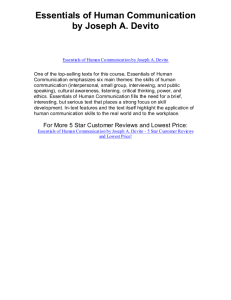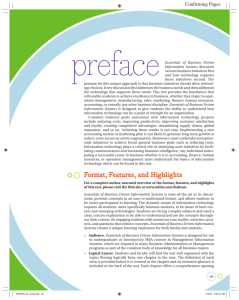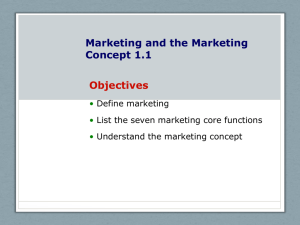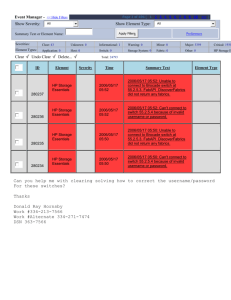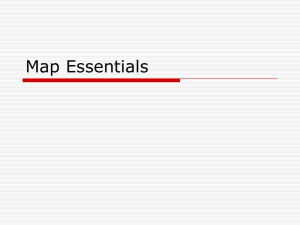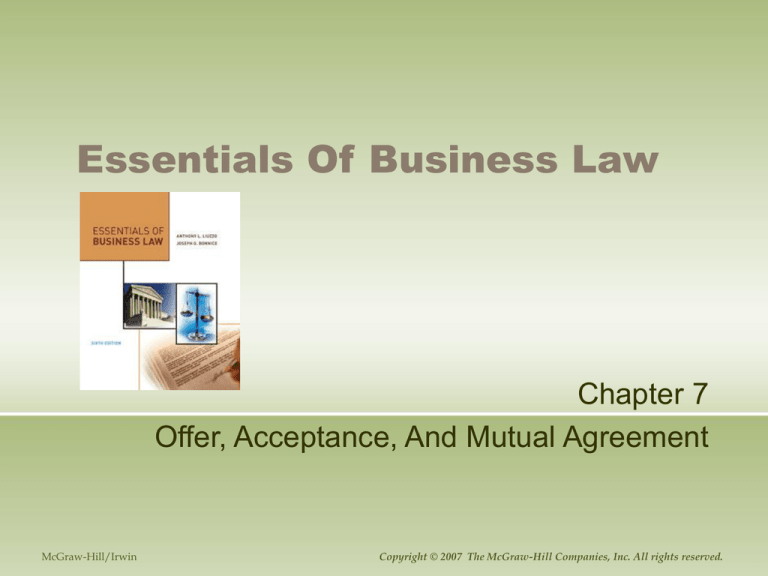
Essentials Of Business Law
Chapter 7
Offer, Acceptance, And Mutual Agreement
McGraw-Hill/Irwin
Copyright © 2007 The McGraw-Hill Companies, Inc. All rights reserved.
Characteristics Of A Valid Offer
Offer must be definite and certain
Specify all terms and conditions
Should include: who, what, where, and when
Offer must be communicated
Orally, written, or implied
Offer must be made with serious intent
Can not be made in anger, in jest, or under
emotional strain
Essentials of Business Law
Chapter 7-2
Bids, Advertising, And
Public Offers
Bids and estimates
Request for proposal
• Not an offer, rather it is a request for an offer
• Can be accepted or rejected
Advertising
Invitation to trade
• Generally not a valid offer
Essentials of Business Law
Chapter 7-3
Bids, Advertising, And
Public Offers
Public offers
General offer to public
• Example: reward for information that leads to the
arrest of a criminal
• Example: reward for the return of a lost pet
Performance of act is considered acceptance
Results in an enforceable contract
Essentials of Business Law
Chapter 7-4
Characteristics Of A
Valid Acceptance
Must be communicated to offeror
Must be unconditional
Essentials of Business Law
Chapter 7-5
Must Be Communicated To
Offeror
General rule: acceptance becomes
effective when the parties so intend
Method of communication
Telephone, letter, e-mail or other form
Sometimes specific form is requested
Example: “reply by registered mail”
Essentials of Business Law
Chapter 7-6
Must Be Communicated To
Offeror
May be explicitly stated as either:
Effective when it is sent by the offeree
Effective when it is received by the offeror
When offer is silent about effective time
Mailbox rule is in effect
If sent via the postal system or by courier
acceptance is effective when sent
Essentials of Business Law
Chapter 7-7
Must Be Communicated To
Offeror
Acceptance is effective when received
when communicated by:
Telephone, fax, or telex
Acceptance sent via e-mail
Courts are divided as to whether it is effective
when sent or when received
Essentials of Business Law
Chapter 7-8
Acceptance Must Be
Unconditional
General rule: acceptance of an offer must be the
same as the offer
No material differences can exist
UCC provides exception between merchants
Additional terms are to be considered proposals in
addition to the contract
Additional terms then become part of the contract
Acceptance cannot be conditional on assent to the
additional or different terms
Essentials of Business Law
Chapter 7-9
Termination Of An Offer
Lapse of time
Failure to accept an offer within the time specified
After a reasonable time period, if time is not specified
in an offer
Rejection
Refusal to accept offer
Terminates offer
Offer cannot be revived or made into a counteroffer
Essentials of Business Law
Chapter 7-10
Termination Of An Offer
Revocation
Offer is withdrawn by offeror
Must be prior to offeree’s acceptance
Can be communicated verbally or in writing
Written offers by merchants must be held
open for time specified
• Cannot be revoked during this time period
• If no time period is specified, until a reasonable
time has elapsed
Essentials of Business Law
Chapter 7-11
Defective Agreements
Voidable contract results if agreement of
either party is obtained by:
Fraud
Misrepresentation
Mistake
Undue influence
Duress
If contract is one of
adhesion
If contract is
unconscionable
Essentials of Business Law
Chapter 7-12
Fraud
Must prove that the statement or act:
Was a misstatement or non-disclosure of a material
fact
Was made with knowledge of its falsity or with
reckless disregard of its truth
Was made with the intention of causing the other
party to enter into the agreement
Was relied on by the injured party
Resulted in loss to the injured party
Injured party can cancel the contract and bring
suit for damages
Essentials of Business Law
Chapter 7-13
Puffing
Expression of opinion usually made by
salespeople
Not considered to be fraud
Typically directed at the five senses
Examples: the dress looks great, the stereo
sounds terrific, the fabric feels soft
Essentials of Business Law
Chapter 7-14
Misrepresentation
Unintentional misstatement or nondisclosure of a material fact
Results in inducing another to enter into an
agreement to his or her injury
Not made knowingly or recklessly
Contract can be canceled
Injured party cannot sue for additional
damages
Essentials of Business Law
Chapter 7-15
Mistake
Belief that is not in accord with the facts
May be concerned with the nature of the
subject matter
May be concerned with the quality of the
subject matter
Must concern an existing fact
Not a belief about a possible future event
Mistake must be mutual
• Made by both parties
Essentials of Business Law
Chapter 7-16
Undue Influence
Improper use of pressure by dominant
member of confidential relationship
Power to control the actions of another
Contract is voidable at the option of the party
wrongfully influenced
Examples include:
•
•
•
•
Employer and employee
Physician and patient
Teacher and student
Attorney and client
Essentials of Business Law
Chapter 7-17
Duress
Applying unlawful or improper pressure to
gain agreement to a contract
Threat of bodily harm
Threat of serious loss or damage to his or her
property
Contract may be dissolved by the injured
party
Essentials of Business Law
Chapter 7-18
Contract Of Adhesion
Parties have unequal bargaining power
Take-it-or-leave-it contract
Unenforceable if it results in a significant
hardship for one of the parties
Prepared by one party and simply presented to
the other without negotiation
Insurance policies
Disclaimers printed on ticket stubs
Dry cleaning receipts
Routine contracts
Essentials of Business Law
Chapter 7-19
Unconscionable Contract
Shockingly unjust or unfair
UCC clause originally intended to apply only to
sale of goods
Recently clause has been applied to consumers
in various kinds of contracts
Making home improvements
Opening a checking account
Leasing an apartment
An agreement written in a way that takes unfair
advantage of someone who does not know English
Essentials of Business Law
Chapter 7-20



